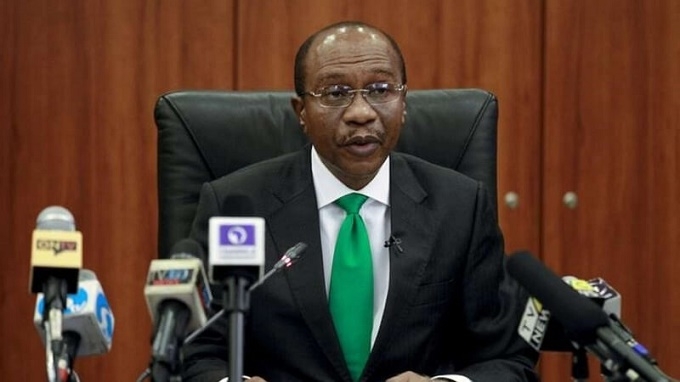 Mr. Godwin Emefiele, CBN governor[/caption]
Mr. Godwin Emefiele, CBN governor[/caption]
The Central Bank of Nigeria has announced a new policy that would guarantee more flexibility in the management of the foreign exchange market.
This was according to the CBN governor, Mr. Godwin Emefiele, who noted that the decision was part of a resolve following the 250th Monetary Policy Committee (MPC) meeting held in Abuja on Tuesday.
According to Emefiele, the apex bank would release details of a “flexible” exchange-rate framework “in the coming days,” adding that it would guarantee improved access to foreign exchange for business to boost the economy.
Advertisement
While assuring Nigerians that the CBN remained committed to the attaining price stability in the country, Emefiele however said the country’s economy is in the face of “imminent recession.”
“To avoid complicating the conditions, the committee decided on the least risky option to hold,” the CBN governor said.
“The foreign exchange market framework, now ready, the MPC voted unanimously to adopt greater flexibility in the exchange rate policy to restore the automatic adjustment properties of the exchange rate.”
He went ahead to say that “the bank would however, retain a small window for funding critical transactions. Details of the operation of the market would be released by the bank at an appropriate time.
Advertisement
“The committee expressed concern over sustained pressure in the foreign exchange market and the necessity of implementing reforms to engender greater flexibility of rate and transparency in the operation of the inter-bank foreign exchange market.
“Accordingly, the committee noted that it was time to introduce greater flexibility in the management of the foreign exchange market. The committee reaffirmed commitment towards maintenance of price stability and reiterated the need to reappraise the coordination mechanism between monetary and fiscal policy and initiate reforms, for the purpose of more efficient policy synchronisation and management.”
He however noted that “there are people who would want to import plant and equipment to produce goods where raw materials are almost 100 percent available locally. We will support attempts by those people to set up factories by way of foreign or local direct investment. We will provide those incentives so we can produce locally and stimulate growth.”
The committee has, however, left interest rate unchanged at 12 per cent, retain the CRR at 22.50 per cent; retain the Liquidity Ratio at 30.00 per cent; and retain the Asymmetric Window at +200 and -500 basis points around the MPR.
The decision of the CBN to make Forex more flexible has sparked different controversies with some experts describing it as a good move in the right direction, while others say it’s a form of devaluation.
Advertisement
“It is a technical devaluation,” Ayodeji Ebo, head of research at Afrinvest West Africa Ltd., said. “The objective is clear. It will open up the foreign-exchange market.
Also commenting, the Director General of the Lagos Chamber of Commerce and Industry (LCCI), Mr. Muda Yusuf, said a flexible exchange rate would bring some stability if the CBN eradicates all forms of corruption, noting that the decision to retain a small window for funding critical transactions isn’t clear as it leaves room for discretion by the CBN which is prone to significant abuses.
In addition, Mr. Bismarck Rewane, an economist and Managing Director and Chief Executive, Financial Derivatives Company Limited said the move is “market positive” adding that a dual exchange rate could be prone to abuse.
A country is said to be in recession when its economy shrinks in two consecutive quarters.
The National Bureau of Statistics last month indicated that the economy contracted to about 0.36 per cent in the first quarter of the year, the first time in over a decade.
According to recent statistics the economy is expected to shrink again in the second quarter which ends in June.
Advertisement
The CBN had placed controls on the naira, pegging it at N197 to the dollar for over a year but exchanges for about N330 in the parallel market.


